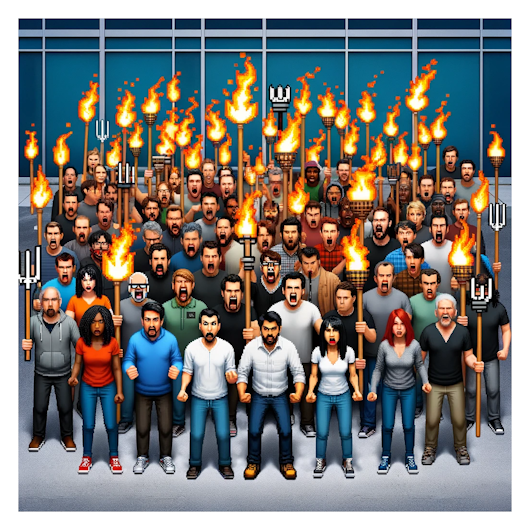
The FTC banned non-competes agreements, and I wish that this had come a few decades earlier. Non-competes kept me from starting businesses and even working for competitors in the past, though more as a matter of honoring the agreement than any legal threat by a former employer.
When you do specialized work for companies, as an employee or a contractor, that non-compete agreement was always a pain. A silent tyranny.
Word around the water cooler always speculated that non-competes were unconstitutional (13th Amendment), but all the ‘legal experts’ around the water cooler were not people who would pay my lawyers.
The 13th Amendment provides that “neither slavery nor involuntary servitude . . . shall exist.” If the protection against involuntary servitude means anything for workers, it means that they have a right to leave their jobs to seek other employment. Indeed, one of the few effective bargaining chips for workers who wish to improve their wages and working conditions is the ability to threaten to quit if one’s demands are not met. Members of the Reconstruction Congress understood that employee mobility was essential to freedom from involuntary servitude. Enslaved people obviously lacked the ability to leave their masters. Even after they were no longer enslaved, without mobility, people freed from slavery would have been forced to work for their former masters. The Reconstruction Congress enforced the 13th Amendment with the 1867 Anti-Peonage Act, prohibiting employers from requiring their workers to enter into contracts that bind them to their employers. Non-compete clauses have similar effects because they prohibit workers from leaving their jobs to find other similar jobs.
“Non-Compete Clauses and the 13th Amendment: Why the New FTC Rule Is Not Only Good Policy but Constitutionally Mandated“, Rebecca Zietlow, JuristNews, Feb 13th, 2023
Employers are stating that they are concerned about trade secrets and so forth, which on the surface seems legitimate – but that’s what the confidentiality agreements are for. Also, a lack of non-competes means that the value of employees to employers is higher. If you don’t want your people to go work for a competitor, don’t let them go. So many companies that I did leave were terrible at listening to employee concerns – not about themselves, but about the company, making jobs unnecessarily political.
Navigating office politics is… tiresome. In fact, I left one company simply because I got tired of the DBA who kept screwing up but was seemingly protected by the business team because he drank with them. He squandered quite a bit of their money shoring up his position by insisting on databases he knew when open source databases could have done the same job much more cost-effectively. I had a non-compete, so I didn’t even bother working within that company’s niche.
And I could have. I had offers. Yet I just didn’t feel like dealing with a vengeful bit of litigation, and that business team could be vengeful. I saw it a few times.
That’s just one story.
Most of these agreements protect employers, and that’s fair to the extent that any work done for them is basically a commissioned work in the realm of software engineering.
I hope this isn’t screwed up, I hope that the Chamber of Commerce appeal fails – not that I want to screw over employers, but because employees shouldn’t get screwed over when they’re stuck in a dead end and have built up expertise in a niche. I’m hoping this gives a better balance.
At any point in the future, I could be either an employer or employee.




